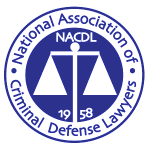Passion, Knowledge & Experience
Amazing lawyer
Criminal Defense in Rochester, New York; (585) 485-0025
Criminal Procedure Law § 30.30 says that the prosecution must announce readiness for trial within certain time periods. Generally speaking, they have six months for a felony, 90 days for a misdemeanor, and 30 days for a violation. This doesn't mean you actually get a trial within those time periods, it just means that the prosecution needs to announce their readiness for trial within those time periods.
There are other time periods that relate to having a speedy trial. For example, under CPL § 190.80, a person charged with a felony and incarcerated upon that charge is entitled to have his or her case heard by a Grand Jury within 45 days, or the person is entitled to release. These laws make sure that criminal cases don't get dragged out for years... they help to push things along.
Question: Why would a defense attorney agree to waive their client's "speedy trial rights?"
Answer: Because sometimes the system moves a little too fast.
The most common reason a defense attorney waives speedy trial rights is so that they can have some breathing room to negotiate a plea deal. We might not want a case going into the Grand Jury, because once a case is indicted, there are limitations on the plea bargaining process set by the law, and also by many District Attorneys. When we take pressure off the prosecution to move a case along, they don't have to line up witnesses and prepare to indict a case; in turn, the defendant gets the benefit of more time to negotiate a resolution. It's something that often works for both sides.
Question: Does the new discovery law effect "speedy trial rights?"
Answer: Yes, in substantial ways.
Before the new discovery law went into effect, prosecutors would come to court and announce readiness for trial at every court appearance. It did not matter if they had shared discovery or talked to witnesses. Under the new discovery law (CPL Article 245), prosecutors must certify that they have turned over all the available discovery to the defense before they can announce readiness for trial. This means that they can no longer play "hide the ball," or bully defendants into a plea deal without having seen the evidence against them.
If you have been charged with a crime, and if you aren't sure about the Grand Jury process, or if you have any other questions, call The Militello Law Firm at (585) 485-0025.
Militello Law Firm, PLLC
2480 Browncroft Blvd.
Rochester, NY 14625
1 University Drive
Geneseo, NY 14454
(585) 485-0025
Fax: (585) 286-3128


